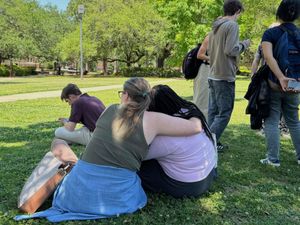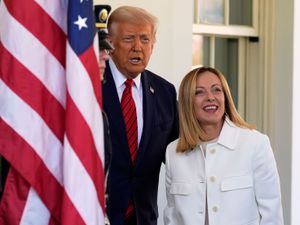Spain’s PM visits China to boost ties with Trump’s top tariff target
The tariffs announced last week — and then paused — by US President Donald Trump could mean that the European Union pursues more trade with China.
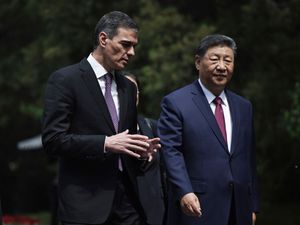
China calls on Western countries to work to support multilateralism and open cooperation, Chinese President Xi Jinping told Spain’s visiting Prime Minister Pedro Sanchez, as Beijing woos allies for its escalating tariff fight with US President Donald Trump.
“The two sides should promote the building of a fair and reasonable global governance system, maintain world peace and security, and promote common development and prosperity,” Mr Xi told Mr Sanchez at the Diaoyutai State Guest House in Beijing, according to a readout of the meeting by the official Xinhua News Agency.
The visit comes at a complex moment for Europe and China.
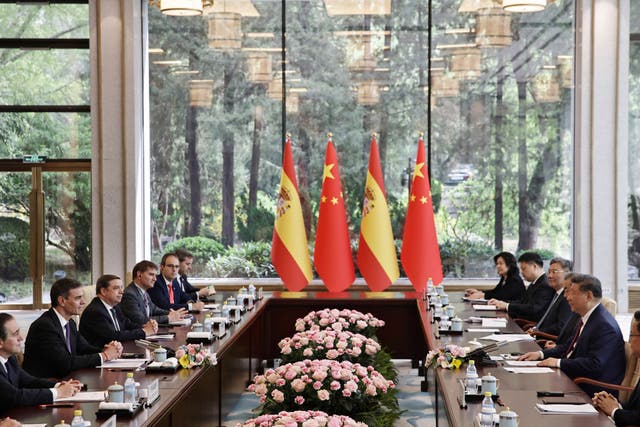
The tariffs announced last week — and then paused — by US President Donald Trump could mean that the European Union pursues more trade with China — the world’s third-largest consumer market after the US and the EU.
Mr Xi made no direct mention of Mr Trump or the tariffs totalling 145% the US is imposing on Chinese goods, but he referred to “multiple risks and challenges” facing the world that can only be dealt with through “unity and cooperation”.
Mr Sanchez is making his third trip to the country in two years as his government seeks to boost investment from the Asian giant.
He was also expected to meet with business leaders from several Chinese companies, many of which produce electric batteries or renewable energy technologies.
After meeting Mr Xi, Mr Sanchez said Spain was in favour of “more balanced relations between the European Union and China, of finding negotiated solutions to our differences, which we have, and of greater cooperation in areas of common interest”.
He added: “Trade wars are not good, nobody wins. And this is clear, the world needs both China and the United States to talk.”
Spain’s government spokesperson Pilar Alegria said earlier this week that Mr Sanchez’s trip “has special importance” and is an opportunity to “diversify markets” as Spain faces US tariffs.
– Warnings from Washington
US treasury secretary Scott Bessent called out Spain for its move towards China, saying on Tuesday that Spain — or any country that tries to get closer to China — would be “cutting their own throat” because Chinese manufacturers will be looking to dump goods that they cannot sell in the US.
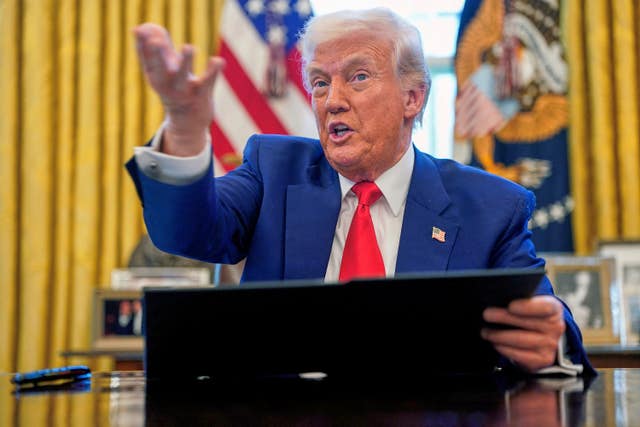
“Expanding the trade relations that we have with other countries, including a partner as important as China, does not go against anyone,” Spain’s agriculture minister Luis Planas, who is accompanying Mr Sanchez, said in Vietnam on Wednesday.
“Everyone has to defend their own interests,” Mr Planas said.
– Spain leans toward China as EU is divided
Spain — the eurozone’s fourth-largest economy and a leader in growth — has in recent years been less adversarial towards China than other EU countries.
After initially supporting EU tariffs placed last year on Chinese-made electric vehicles over concerns that they enjoy unfair advantages, Spain abstained from a vote on the proposal.
Mr Planas insisted that Spain’s approach to China “contributes to the collective effort made by certain countries in the European Union to get out of this situation”.
While China’s investments in Spain have grown, the Iberian nation trades less with China than Germany or Italy.
“Spain’s position has changed to be more pro-China… than the the average European country,” said Alicia Garcia-Herrero, an economist for Asia Pacific at the French investment bank Natixis and an expert on Europe’s relations with China.

